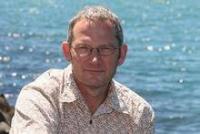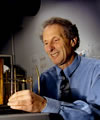The attempt by NZ’s merry little band of climate cranks to have the NZ temperature record declared invalid has ended in ignominious defeat. In his ruling [PDF], handed down today, Justice Venning finds:
The plaintiff does not succeed on any of its challenges to the three decisions of NIWA in issue. The application for judicial review is dismissed and judgment entered for the defendant. [and] The defendant is entitled to costs.
It will be interesting to see whether the NZ Climate Science Education Trust, which was established purely to bring this action, is able to stump up to cover NIWA’s costs. If it doesn’t, the NZ taxpayer will be left to pick up the bill for this absurd bit of political grandstanding by the Climate “Science” Coalition.
In his decision, Justive Venning makes a number of interesting points, noting in paragraph 48:
This Court should not seek to determine or resolve scientific questions demanding the evaluation of contentious expert opinion.
Embarrassingly for the CSET, the judge also finds that two of its “experts” were nothing of the sort, declaring large chunks of their “evidence” inadmissible. Here’s the judge on former journalist Terry Dunleavy [par 51]
Section 25 could only apply if Mr Dunleavy was an expert in the particular area of the science of meteorology and/or climate. He is not. He has no applicable qualifications. His interest in the area does not sufficiently qualify him as an expert. I also accept Mr Smith’s further point that Mr Dunleavy’s views are not capable of offering substantial help to this Court on the issue that it has to determine. To that extent I agree that substantial passages of Mr Dunleavy’s evidence are inadmissible.
And in par 53, referring to the CSET’s stats man:
Similar issues (as to the limited nature of his expertise), apply to the evidence of Mr Dedekind.
[54]… Mr Dedekind’s general expertise in basic statistical techniques does not extend to any particular specialised experience or qualifications in the specific field of applying statistical techniques in the field of climate science. To that extent, where Mr Dedekind purports to comment or give opinions as to NIWA’s application of statistical techniques in those fields, his evidence is of little assistance to the Court.
The judge also noted that the other expert witness relied on by the NZ CSET, Bob Carter, also made a number of mistakes in his evidence. Not a good look…
I did have to laugh out loud at one point (not something that often happens when reading a judgement), when reading the judge’s comments on the original NZ CSET submissions:
Both the original statement of claim and the first amended statement of claim were prolix.
One wonders who brought a shine to those words…
No doubt the crank spin machine will be hard at work to try to salvage something from this train wreck, but it’s hard to see how. Common sense has prevailed. Warming remains unequivocal, and can’t be ruled inadmissible — unlike the Coalition’s precious “experts”.
[Update: Leading Climate Scientists Welcome Judge’s Decision on Temperatures
Associate Professor James Renwick of Victoria University said he was pleased that the court had respected and reaffirmed the credibility of the scientific process. It was a strong message to those wanting to challenge widely-agreed scientific findings to do so honestly and openly in scientific forums.
…and…
… the case represents a massive waste of New Zealand tax payer’s funds. In defending the claim, NIWA has spent a huge amount (estimated at well over $100,000) and has diverted a number of its scientists away from their research. The country can ill afford to waste such an amount. “This misguided action of a small group adds confusion to a simple issue – the world is warming and future generations of New Zealanders will have to deal with the consequences” Dr Renwick said.
The press release was prepared and endorsed by:
Associate Professor James Renwick, School of Geography, Environment and Earth Sciences, Victoria University of Wellington
Professor Jim Salinger, currently visiting Stanford University
Professor Martin Manning, Climate Change Research Institute, Victoria University of Wellington
Professor Peter Barrett, Antarctic Research Centre, Victoria University of Wellington
Professor (Emeritus) Blair Fitzharris, University of Otago
Professor Keith Hunter, Pro-Vice Chancellor Science, University of Otago ]
Like this:
Like Loading...
 The new “compact” NZ Herald has taken a downmarket tabloid approach to informing its readers by running an opinion piece about the recent courtroom defeat for NZ’s climate cranks by prominent climate sceptic and Auckland University geographer Chris de Freitas, without explaining de Freitas’ long history of association with the cranks he’s defending. In the article, de Freitas overstates the uncertainties associated with temperature records, even going so far as to imply that the warming trend over the last hundred years might be “indistinguishable from zero” ((“Temperature trends detected are small, usually just a few tenths of one degree Celsius over 100 years, a rate that is exceeded by the data’s standard error. Statistically this means the trend is indistinguishable from zero.”)). He also overplays the importance of temperature series to policy-makers — a line straight out of crank litigant Barry Brill’s playbook, and self-evident nonsense.
The new “compact” NZ Herald has taken a downmarket tabloid approach to informing its readers by running an opinion piece about the recent courtroom defeat for NZ’s climate cranks by prominent climate sceptic and Auckland University geographer Chris de Freitas, without explaining de Freitas’ long history of association with the cranks he’s defending. In the article, de Freitas overstates the uncertainties associated with temperature records, even going so far as to imply that the warming trend over the last hundred years might be “indistinguishable from zero” ((“Temperature trends detected are small, usually just a few tenths of one degree Celsius over 100 years, a rate that is exceeded by the data’s standard error. Statistically this means the trend is indistinguishable from zero.”)). He also overplays the importance of temperature series to policy-makers — a line straight out of crank litigant Barry Brill’s playbook, and self-evident nonsense.
 I have been listening to a lecture by Victoria University climate scientist, James Renwick, who has recently moved to the university from his post as principal climate scientist at NIWA. In the seminar he sets out in broad terms some of the latest developments in the science. It’s a very clear summation, with some recent interesting graphs and charts, showing the direction which in which climate change is continuing to move. Needless to say there’s no change in direction apparent. I recommend
I have been listening to a lecture by Victoria University climate scientist, James Renwick, who has recently moved to the university from his post as principal climate scientist at NIWA. In the seminar he sets out in broad terms some of the latest developments in the science. It’s a very clear summation, with some recent interesting graphs and charts, showing the direction which in which climate change is continuing to move. Needless to say there’s no change in direction apparent. I recommend  Climate scientists want to monitor how climate is changing and global warming progressing. This is particularly pertinent as this week the New Zealand Climate Science Education Trust are currently being heard in the Auckland High Court to try to persuade a judge to invalidate New Zealand’s temperature records which have been compiled and collected by the National Institute of Water and Atmospheric Research and the former government agencies. The coalition asserts the only way NIWA can claim a warming trend of 1°C over the past century is by cooking the books.
Climate scientists want to monitor how climate is changing and global warming progressing. This is particularly pertinent as this week the New Zealand Climate Science Education Trust are currently being heard in the Auckland High Court to try to persuade a judge to invalidate New Zealand’s temperature records which have been compiled and collected by the National Institute of Water and Atmospheric Research and the former government agencies. The coalition asserts the only way NIWA can claim a warming trend of 1°C over the past century is by cooking the books.